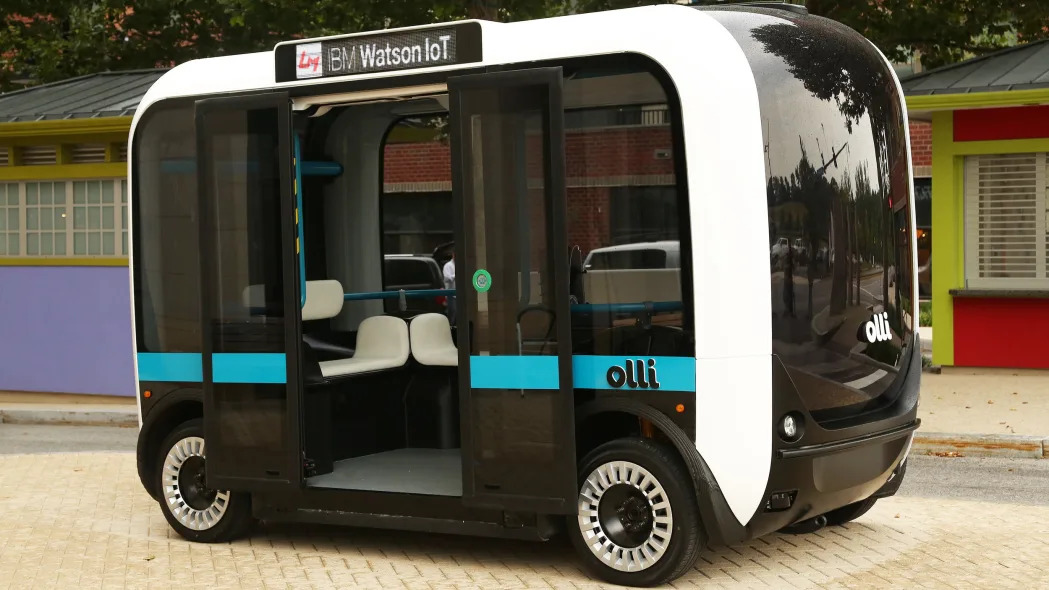Bret Greenstein, vice president of the IBM Watson Internet of Things Platform, says we'll come to love the autonomous car. Eventually. Speaking at UPSHIFT 2016, he said it all has to with how the cars will listen to us and how we'll form relationships with them.
Greenstein introduced the topic by talking about his first car, a 1960s Oldsmobile. He talked about all the classic car guy tropes, that he could fix it with "a screwdriver and duct tape" and how he knew what the car needed just by listening to it. With smart, autonomous cars, those roles will be reversed, with the car listening to you to find out what you need.
Greenstein's example was what he has seen with IBM's collaborative project with Local Motors. IBM has added Watson, the company's artificial intelligence system, to LM's autonomous bus, Olli. The bus shuttles people around, and those passengers can talk to Olli and tell it where they want to go thanks to Watson. When passengers got off of Olli, Greenstein said the passengers were always smiling, which is something he said never happens after someone rides on a traditional bus.
Greenstein introduced the topic by talking about his first car, a 1960s Oldsmobile. He talked about all the classic car guy tropes, that he could fix it with "a screwdriver and duct tape" and how he knew what the car needed just by listening to it. With smart, autonomous cars, those roles will be reversed, with the car listening to you to find out what you need.
Greenstein's example was what he has seen with IBM's collaborative project with Local Motors. IBM has added Watson, the company's artificial intelligence system, to LM's autonomous bus, Olli. The bus shuttles people around, and those passengers can talk to Olli and tell it where they want to go thanks to Watson. When passengers got off of Olli, Greenstein said the passengers were always smiling, which is something he said never happens after someone rides on a traditional bus.
The reason, Greenstein said, was not just the novelty of riding an autonomous bus, but because the passengers could chat with it. Now when we heard this, we immediately thought of other things that people could also talk to, like Siri and old versions of Ford Sync, and how frequently they can be frustrating interfaces. When we asked Goldstein, he said the issue with those systems is a lack of depth and recognition.
Watson solves that with a variety of capabilities and even the ability to learn your patterns and preferences. Greenstein said that in an autonomous bus application, Watson can ask you what music you'd like to select, or recognize when you're probably going to work and preload those driving instructions. He even suggested it could warn you if an ex you don't want to see is planning on getting on that bus.
As for recognition, Greenstein highlighted a Watson program at Thomas Jefferson University Hospital in the Philadelphia area. IBM added Watson to patients' rooms so that they could talk to it to adjust lighting and conditions and call specific doctors. He said that people were reluctant to use it at first, but as soon as the voice recognition hit 90 percent, they enjoyed the system.
Related Video:


Sign in to post
Please sign in to leave a comment.
Continue